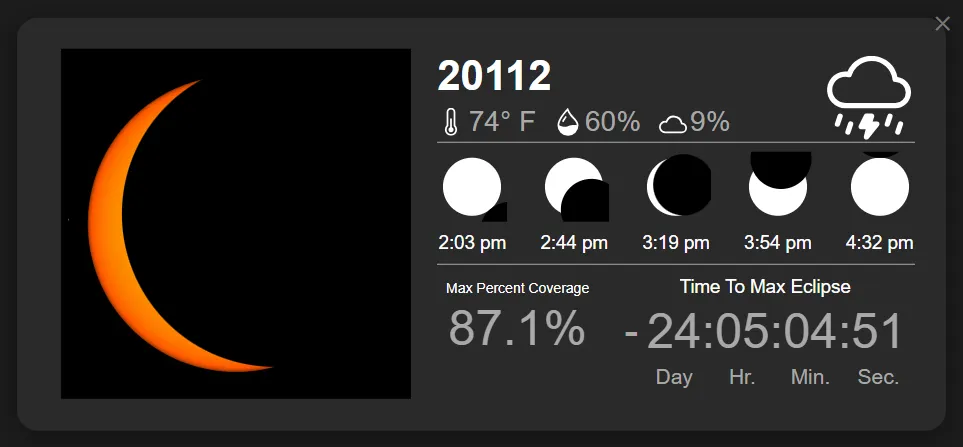
In preparation for the solar eclipse on April 8, 2024, we want to ensure the safety of our students and families during this spectacular celestial event.
- What is a solar eclipse?
- A solar eclipse occurs when the moon passes in between the sun and the Earth, temporarily blocking sunlight. The upcoming solar eclipse is unique because parts of the North American continent will see the “totality,” where 100% of the sun is covered by the moon for a short period of time. The next U.S. eclipse that spans from coast to coast will not happen until 2045!
- What can you expect in Prince William County?
- The eclipse will begin at 2:03 p.m. and end by 4:32 p.m. Although Prince William County is not located in the path of totality, the maximum coverage will be substantial, and we will see approximately 87% of the sun covered by the moon at 3:19 p.m. A simulation of the eclipse for Manassas, Virginia, is an excellent way to build understanding and excitement for this event.
- How can you safely view the eclipse?
-
Safety is our top priority. Let’s enjoy this awe-inspiring experience while protecting our eyes. Here are some essential guidelines to follow:
- Never look directly at the sun.
- Looking directly at the sun, even during an eclipse, can cause permanent eye damage, including blindness.
- Use approved solar eclipse glasses.
- Always use special-purpose solar filters, such as “eclipse glasses,” that comply with the ISO 12312-2 international standard.
- Ordinary sunglasses, even very dark ones, are not safe for looking at the sun.
- Inspect your solar filter.
- Inspect your eclipse glasses before each use. Discard them if scratched, punctured, torn, or damaged.
- Supervise children.
- Always supervise children using solar filters.
- If your child wears eyeglasses, keep them on and put the eclipse glasses over them.
- Use indirect viewing methods.
- If you don’t have eclipse glasses, use indirect methods:
- Create a pinhole camera or a viewer using simple household materials and observe the partially eclipsed sun indirectly.
- If you don’t have eclipse glasses, use indirect methods:
- Never look directly at the sun.
For additional information, refer to the instructions endorsed by NASA and other national organizations or contact the PWCS Student Learning Department at 703-791-7240.
